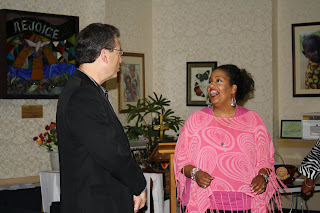December 31, 2011 marks 30 years since media guru Marshall McLuhan died, a victim of a final stroke after suffering from a series of them. How kind the intervening years have been to him. At the time of his death, he was viewed in his native Canada as somewhat of an embarrassment, but today he is an oracle, having essentially foreseen Facebook Amazon, Twitter, the iPhone and other modern media. In the words of a New York Times article published this past summer to mark McLuhan's centenary, "Instead of being viewed as an academic fraud, McLuhan is now widely celebrated as the man who prophesied both the Internet and its impact on society." Indeed, Professor B. W. Powe of Toronto's York University, and one of the organizers of a weeklong series of memorial events in that city, said this: “We read the 21st-century media through his eyes.”
Quite a turnaround for one man, though not unusual. As with most social visionaries, McLuhan challenged tightly held beliefs, and most people are afraid to let go of such ideas. His vocabulary was also new and alien. He introduced us to his definitions of "hot" and "cold" media: Hot media, such as print and the cinema, are sharp in definition, filled with data, exclusively visual and verbal. He also asserted that these media were psychologically damaging and low in audience participation. Other hot media, according to McLuhan, were photography, competitive spectator sports and radio. Moreover, he said that hot media make people think logically and independently rather than naturally and communally. McLuhan preferred "cool" media, noting that while they are low in information, they also challenge their users by forcing them to fill in the "missing" information. He saw the telephone, modern painting and, most significantly, television as cool media because they are oral-auditory, tactile and visceral. McLuhan believed that these media would be a unifying force, putting modern "back into the tribal or oral pattern with its seamless web of kinship and interdependence." These behaviors would, in turn, create his "global village," a term that he coined
As with many prophets, McLuhan's revolutionary ideas were not regarded kindly in his own time. A Time magazine review of his book Understanding Media -- regarded today as the seminal work on the effect of media in the modern world and which contained many of the concepts described above -- called the book "pseudo science." Yet years later, when Time published their obituary of McLuhan, the magazine stated that "his writing was clumsy, his thoughts badly organized, and even he complained that he had trouble understanding his ideas. But...when he died last week in Toronto at the age of 69, Marshall McLuhan was recognized as one of the most influential thinkers of the '60s. Some of his insights into the nature of television and the electronic age became conventional wisdom."
One of McLuhan's prime principles was that “we shape our tools, and thereafter our tools shape us.” Can we doubt that statement today, given how we interact through Web 2.0? We make "friends" through Facebook, we reveal our innermost thoughts through our blogs, we make spectacles of ourselves through YouTube, and we have learned to communicate succinctly in just 140 characters through our Twitter accounts.
Once again, we are currently reminded of the power of the media in our politics. And I do not mean our primary Presidential politics. No, the "global village" that McLuhan foresaw also has global politics. Time scoffed yet again when McLuhan stated in Understanding Media that "Had TV occurred on a large scale during Hitler's reign, he would have vanished quickly." No, the Old Professor was on target, as we have seen Twitter and Facebook cut through censorship and propaganda to produce an Arab Spring or rally for the rights of the disenfranchised. And here in this country, presidential front runners fall back almost immediately as they wilt under the glare of the media spotlight. That durability under scrutiny seems to determine winners more than any other obstacle. Some partisans may complain that Barrack Obama did not face any real scrutiny during his primary campaign, but come on; I was viewing fresh footage of his pastor, the incendiary Rev. Jeremiah Wright, every morning, whether through the network news or the Internet. And will Mitt Romney, seemingly made of asbestos and impervious to the heat of battle, win his party's nomination because no medium will be able to lay a finger on him long enough to count him out as they have so many others? We'll see.
When McLuhan made his pronouncements more than 40 years ago, some listened while many others dismissed them as nonsense. He stated that media are "not neutral; instead they have an effect on people." Today, as we study the effects of television on what we buy, who we elect and how we learn, and as we study how video games and the Internet are affecting the linearity of our thinking, his theories are easily echoed. Yet because they are so commonsense and commonplace, we forget their origins. However, we learned similar lessons from Einstein, whose ideas were so advanced that they were also ineffable because no suitable language existed to express them. (How does one explain E=MC squared?)
The global village did not exist when Marshall McLuhan coined the phrase. But somehow he emerged from his intellectual rabbit hole to glimpse it, and then he wrote many books and essays to prepare us for it. Let's stay aware of the power we possess through our media, which have indeed become our extensions and have united us (and conformed us) in ways that only he seemed to imagine.
I hate having to earn money, but I like knowing what makes me valuable
-
The only way I find out what people value most about me is by having to
sell something. Otherwise I’m just guessing. And I pretty much always guess
wrong...
3 months ago




























